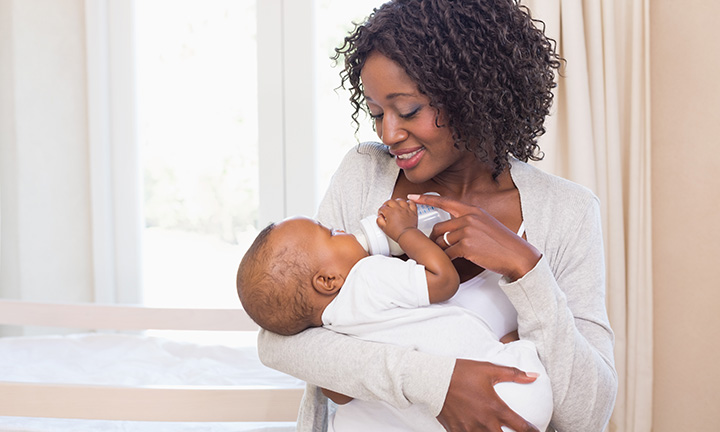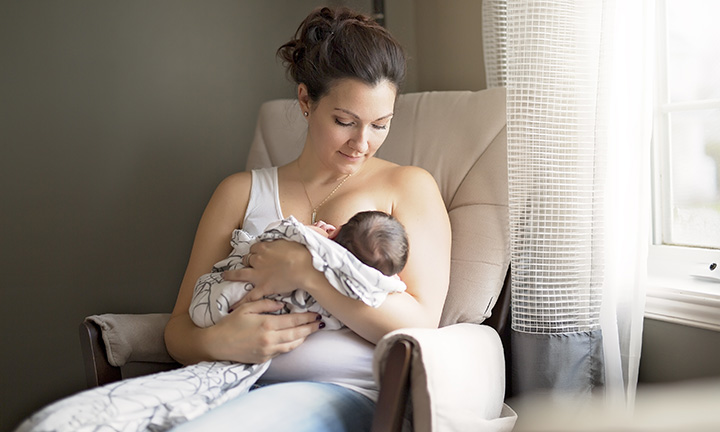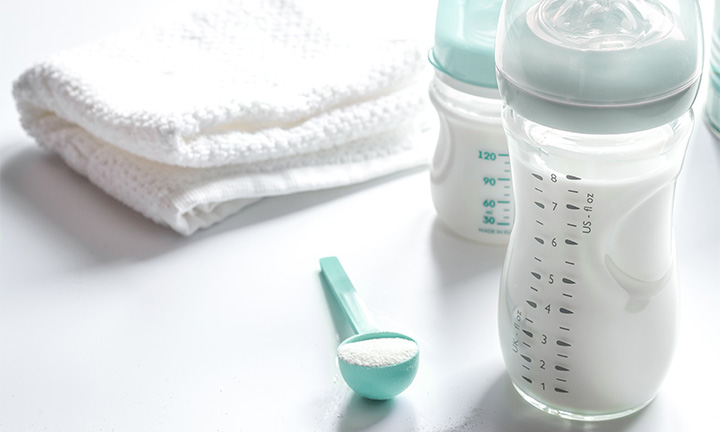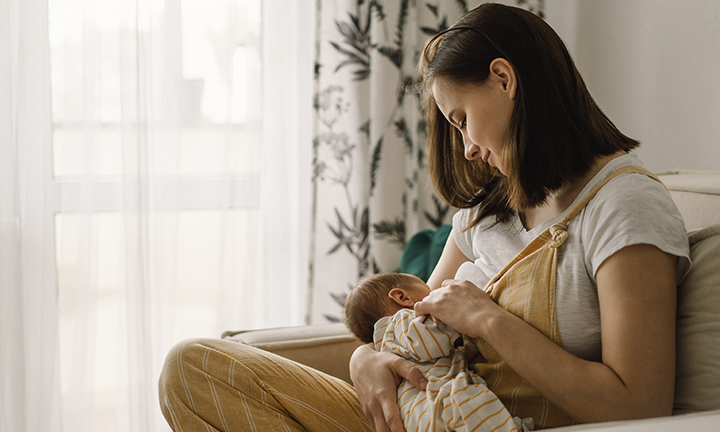
How Long Is Formula Good for After It's Mixed?
If you’re formula-feeding your little one, you may be wondering what the best and safest practices are when it comes to formula, especially after you’ve mixed it. And there’s that commonly asked question “How long can a bottle of formula sit out?” Luckily, making a day’s worth of formula in advance involves a lot of the same food safety steps you’d practice when storing leftovers, except that the window of time is shorter. Read on to get more of your questions answered and to learn about safely handling formula.
How Long Can Formula Sit Out for Once It Has Been Prepared?
You may have wondered how long a bottle of formula can stay out or last at room temperature. It actually is not a good idea to have formula sit out at room temperature for an extended period of time once it’s been made. Use prepared formula within two hours of mixing and within one hour of starting your baby’s feeding.
Once you’ve fed your baby their formula, make sure to discard any formula left over in the bottle. It's no longer safe to be consumed since it’s been contaminated with your baby’s saliva and can grow unsafe bacteria. And be sure to sanitize your baby’s bottle before the next use.
How Long Is Formula Good for in the Fridge?
Yes, you can refrigerate formula if you’ve decided to prepare your baby’s daily batch in advance or you’re trying paced bottle feeding, which might require more stopping and starting and, therefore fridge storage. But, how long does formula last in the fridge? After you’ve mixed formula, it should be used immediately or stored in the refrigerator as soon as possible and used within 24 hours (from the moment you prepared it). So, it’s best not to overdo it when it comes to preparing your baby’s formula in advance. Simply mix the amount you’d use up that same day.
Tip
If you plan to prepare bottles of formula ahead of time for storage in the fridge, here are some important tips to follow:
Label the bottles with the date and time you prepared them
Refrigerate the bottles but do not freeze them
Keep the bottles near the back of the refrigerator where it’s the coldest
Discard the refrigerated formula if it hasn’t been used within 24 hours (including the time it took to prepare it).
How Long Is Open, Unprepared, Unmixed Formula Good For?
Most baby formula should be used within one month of opening the container, but check the label for exact recommendations. Be sure to store the open container of baby formula in a cool, dry place with the lid closed tightly. Do not keep unmixed powdered formula in the refrigerator.
Tip
When you open a container of baby formula, write the opening date directly onto the lid using a permanent marker. This way you’ll be reminded of how fresh the formula is, and when it’s time to discard it.
How Long Does Unopened Baby Formula Last?
Just like any food product, baby formula doesn’t last forever. Always check your container of formula for the “use by” date. Don’t use the unopened container of formula if it’s past the expiration date. Make sure that the formula has not been recalled by checking the U.S. Food and Drug Administration (FDA) website.
Store unopened containers of baby formula in a cool, dry place. Avoid storing formula in your vehicle, garage, or outdoors.
Tip
When shopping for baby formula, make sure to check the expiration date especially if it’s on sale—oftentimes products that are close to their expiration are put on sale to clear out the shelves. Don’t buy expired or close-to-expiring baby formula. Also, avoid buying containers of baby formula that appear damaged—those that have leaks, bulges, dents, or rusty spots.
The Bottom Line
There are a few things to keep in mind when using formula with your baby. Make sure the formula that you buy isn’t expired and that the container hasn’t been damaged. Store the container of formula in a cool, dry place, even after it’s been opened, but don’t keep unmixed powdered formula in the refrigerator. Once you’ve mixed the formula, be sure to use it within two hours of mixing and within one hour of starting your baby’s feeding. If you like, you can store extra bottles of prepared formula in the back of the refrigerator, where it’s the coldest. Be sure to use the prepared bottles within 24 hours (including preparation time); otherwise you’ll need to discard the mixed formula. If you’re wondering how often or how much a baby can eat in a day, read up on planning your baby’s feeding schedule for their first year. Also get some more information on the question ‘when do babies stop drinking formula?’. Formula-feeding isn't complicated, but it’s important to adhere to the guidelines mentioned above to ensure that your baby stays healthy and doesn't consume formula that's unsafe.
- Book: Caring for your baby and young child, birth to age 5, Sixth Edition Paperback – November 2, 2014 by American Academy of Pediatrics (Author)
- Book: Guide to Your Baby’s First Years, Second Edition Paperback – 2020 by Mayo Clinic, Walter J. Cook, M.D.; Kelsey M. Klaas, M.D. (Authors)
- CDC: Infant formula preparation and storage
Read more about Baby
Join a World of Support
through Pregnancy and Parenthood.
TRACK WITH TOOLS
LEARN WITH EXPERTS
GET REWARDED














